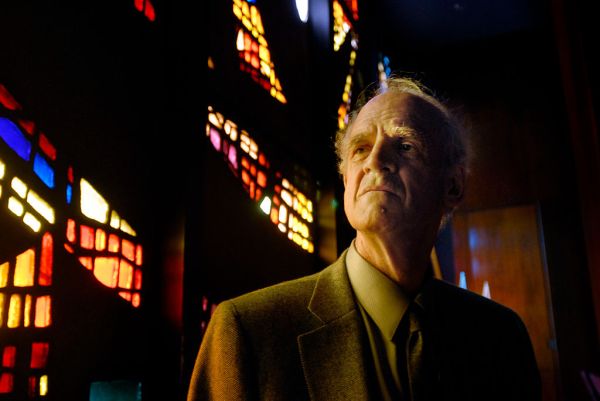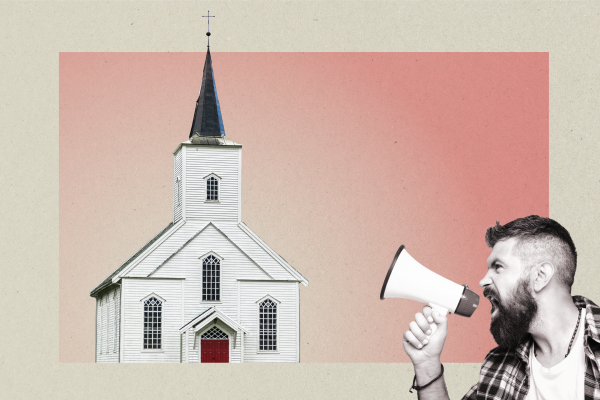In the early 1980s, the American writer Andre Dubus submitted “The Pretty Girl” to Esquire. “God, I like this. Why don’t you add forty pages to it,” said Rust Hills, then-fiction editor at the magazine, as he passed on the novella. “You could make a lot of money. Nobody writes about this Catholic blood and guts.”
Hills was correct, in part: Dubus’ work teemed with Catholics and violence. But his pithy comment ignored a cadre of Catholic fiction writers formed by Latin Mass. Don DeLillo, who spoke of its “theater.” Toni Morrison, who converted before her teenage years, after falling in love with the language of faith. Thomas Pynchon, whose jesuitical strain of narrative humor arose from his Long Island youth. And not least of all, Cormac McCarthy, who passed away this month at 89.
McCarthy—born in Rhode Island but truly formed in Knoxville, Tennessee—was a preternaturally Catholic writer. He attended parochial schools through high school. He sang at the Church of the Immaculate Conception: Latin at the midnight Mass on Christmas Eve. He was an altar boy. His brother Bill spent a decade in a Jesuit seminary.
Some might think this doesn’t track with McCarthy the sweeping Southwestern mythologist, whose cult-classic books like Blood Meridian and No Country for Old Men carry a violent nihilism. (Surely his Catholicism was merely a vestige of his childhood, right?) Yet as we reflect on McCarthy’s life and work after his death, we should reconsider his religious sense, and notice how his language and worldview descended from Catholic blood and guts.
This is not to mistake religiosity with piety. The latter is often a private matter, made doubly so by McCarthy’s nearly monastic tendencies. McCarthy was born, baptized, raised, and confirmed a Catholic—and perhaps most sharply, he was culturally formed a Catholic through a life of paradox. Although McCarthy’s family moved from Rhode Island to Tennessee when he was four, his family’s Northeastern pedigree clashed with his southern personal folklore. For an imaginative young boy, the tension is storytelling gold.
Young McCarthy once said, “I felt early on I wasn’t going to be a respectable citizen.” His first three novels were dark, woodsy nightmares. He wrote of terrible parents, of long-held vengeance and ruthless killers. In Blood Meridian, the churches are defaced—“The huge carved and paneled doors hung awap on their hinges and a carved stone Virgin held in her arms a headless child”—and Hell appears to be on earth, as marauders “appeared in the streets, tattered, stinking, ornamented with human parts like cannibals.”
Where was God in all of this? For Catholics, death is always near. It is in our prayers. It is in the saint and votive candles, flickering. Catholicism is a faith made for a messy world, where virtue and vice are as proximate as the sacred and the profane. In McCarthy’s fiction, death and evil were ever present. It is an Augustinian view: “I sought whence evil comes and there was no solution.”
Perhaps the book that best captures McCarthy’s religious sense was Suttree, his 1979 novel about the titular character who trades wealth for an itinerant life on the Tennessee River. Set in his own Knoxville, he’d been working on the manuscript on and off for as long as he’d been publishing fiction.
The novel’s protagonist, Cornelius Suttree, had a twin who died during childbirth: “He in the limbo of the Christless righteous, I in a terrestrial hell.” A self-described “defrocked” Catholic, Suttree is drawn to street preachers, “God’s barkers gone forth into the world like the prophets of old.” Yet he does not speak the Protestant tongue of the city’s patrician residents: “The only words I know are the Catholic ones.”
In one scene, a drunk Suttree arrives at the Church of the Immaculate Conception, McCarthy’s own formative parish. The sentences are striking. He looks at a plaster Christ, “Agonized beneath his muricate crown. Spiked palms and riven belly, there beneath the stark ribs the cleanlipped spear-wound. His caved haunches loosely girdled, feet crossed and fastened by a single nail. To the left his mother. Mater alchimia in skyblue robes, she treads a snake with her chipped and naked feet.”
To my cradle Catholic ears, that syntax sings a Latinate hymn. Those are the sentences of a wily parochial boy, smart with the music of words but bored with the tedium of school—who grew up to be a gifted novelist steeped in the Catholic imagination of his youth.
McCarthy was notoriously evasive about his religious influences throughout his adult life, saying in a 2009 interview, “Am I a spiritual person? I would like to be. Not that I am thinking about some afterlife that I want to go to.” Yet McCarthy was clearly a God-haunted writer. His language, his violence, his vision, his slight aperture for hope—all this best makes sense when we remember his Catholic identity.








Please note that we at The Dispatch hold ourselves, our work, and our commenters to a higher standard than other places on the internet. We welcome comments that foster genuine debate or discussion—including comments critical of us or our work—but responses that include ad hominem attacks on fellow Dispatch members or are intended to stoke fear and anger may be moderated.